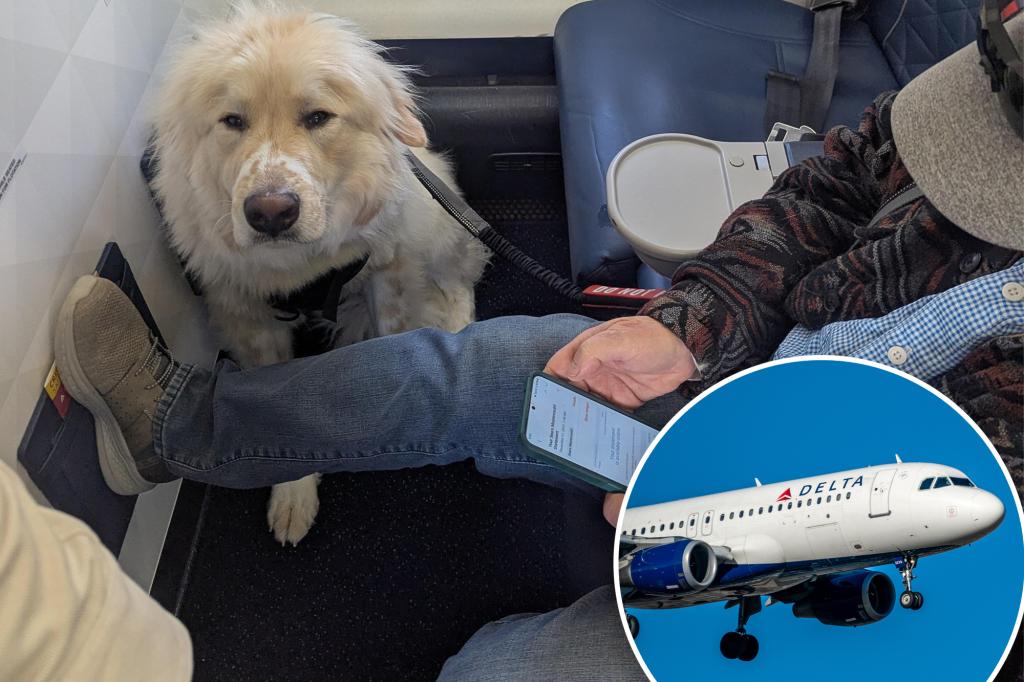The incident aboard a Delta Air Lines flight sparked a heated online debate surrounding the prioritization of service animals over paying passengers. A disgruntled passenger, originally upgraded to first class, was downgraded shortly before boarding and subsequently discovered a dog occupying their previously assigned premium seat. The passenger’s frustration stemmed not only from the downgrade but also from Delta’s explanation that service animals take precedence in seating arrangements, particularly in bulkhead rows with extra legroom. This incident ignited a broader discussion about the perceived prevalence of service animals on flights and the potential for misuse of the system. The passenger’s complaint resonated with many online, raising questions about airline loyalty and the fairness of prioritizing animals over loyal, paying customers.
The central issue revolves around the balance between accommodating passengers with disabilities and respecting the comfort and expectations of other travelers. Delta’s policy, based on legal obligations under the Air Carrier Access Act, mandates prioritizing passengers with disabilities and their service animals, including providing bulkhead seats when necessary. However, the passenger’s complaint highlighted the lack of transparency and communication regarding the last-minute seat change. The sudden downgrade, coupled with the discovery of a dog in the previously assigned first-class seat, fueled the passenger’s frustration and sparked a wider conversation about the perceived increase in service animals on flights and the potential for abuse of the system.
Many online commentators echoed the passenger’s sentiments, questioning the sheer number of service animals observed on flights, particularly in the United States. Some attributed this to an “American main-character syndrome” and speculated about the legitimacy of some service animal claims. Jokes about the dog’s frequent flyer status and the ease of obtaining service dog vests underscored the underlying skepticism towards the prevalence of service animals in air travel. This skepticism, however, overlooks the genuine needs of individuals who rely on service animals for assistance and the legal framework that mandates their accommodation.
While many sympathized with the downgraded passenger, a Delta employee offered insight into the airline’s perspective, explaining the legal obligation to accommodate passengers with disabilities, even requiring relocation of other passengers. This legal requirement underscores the complexities of balancing the rights of all passengers. The Delta employee’s explanation sheds light on the difficult position airlines face in complying with legal obligations while also managing customer expectations. The situation highlights the need for clearer communication and more proactive management of passenger expectations to mitigate potential conflicts arising from these necessary accommodations.
Travel expert Gary Leff weighed in on the debate, questioning Delta’s logic in bumping a first-class passenger for a dog, particularly in a last-minute scenario. While acknowledging the airlines’ obligation to provide reasonable accommodations, Leff argued that a last-minute seat change was not necessarily required in this instance. He also pointed to other instances involving Delta and service animals, such as booting a first-class passenger for an emotional support animal with excessive carry-on bags and allowing dogs in Delta One lounges. These examples further fueled the perception that Delta has prioritized animals over its paying customers, potentially at the expense of customer loyalty.
The incident aboard the Delta flight illuminated a complex issue with various perspectives to consider. While airlines are legally obligated to accommodate passengers with disabilities and their service animals, the execution of these accommodations can create friction with other passengers. The case raises important questions about transparency, communication, and the potential for abuse of the system. It also highlights the challenges airlines face in balancing the needs of all passengers while upholding legal requirements. Ultimately, the debate underscores the need for a more nuanced understanding of both the rights of passengers with disabilities and the expectations of other travelers. A more proactive approach to communication and passenger management may help mitigate future conflicts and ensure a more positive travel experience for all.













